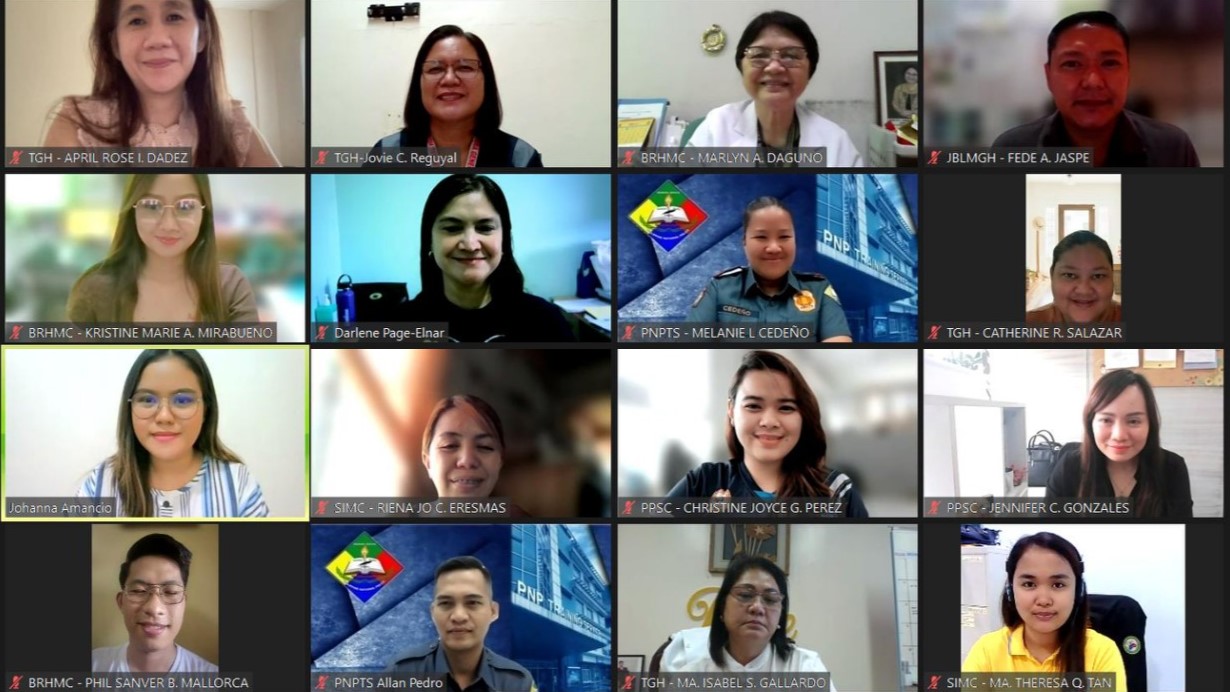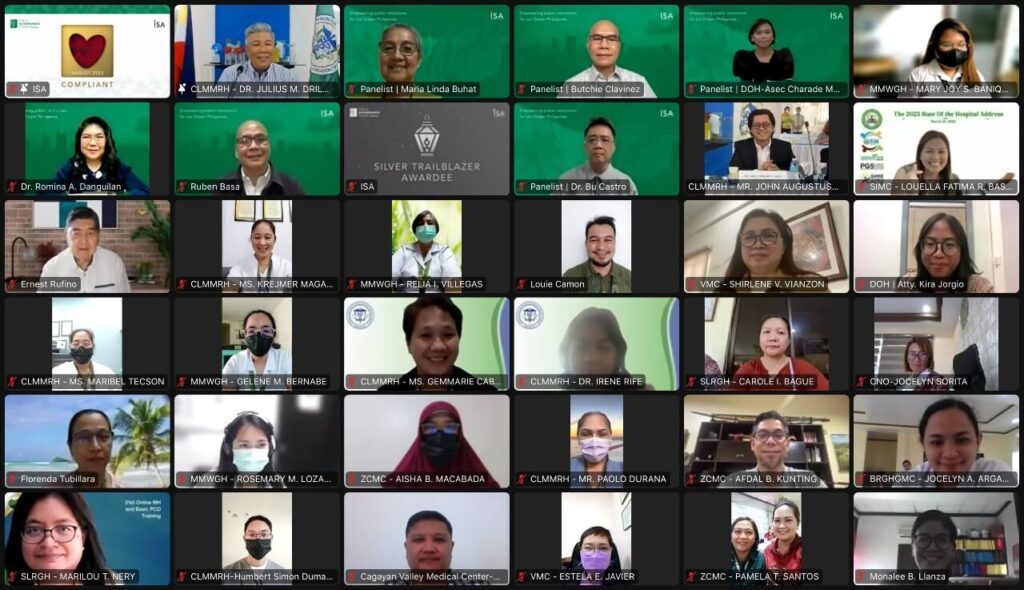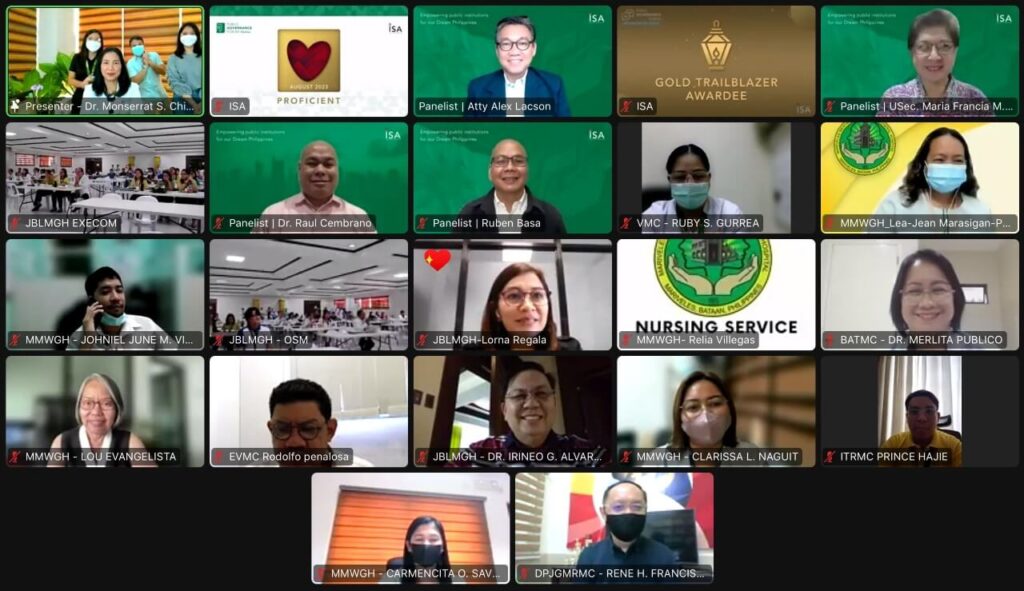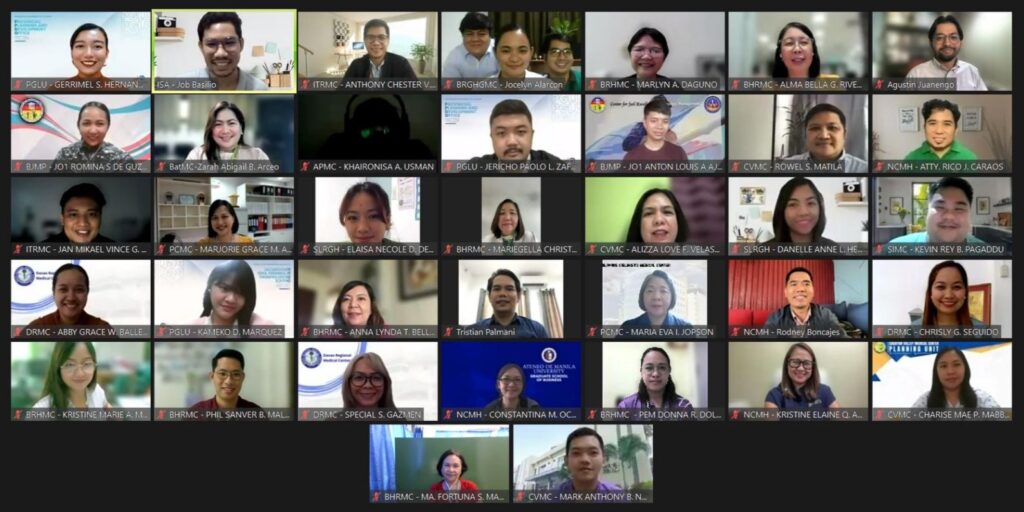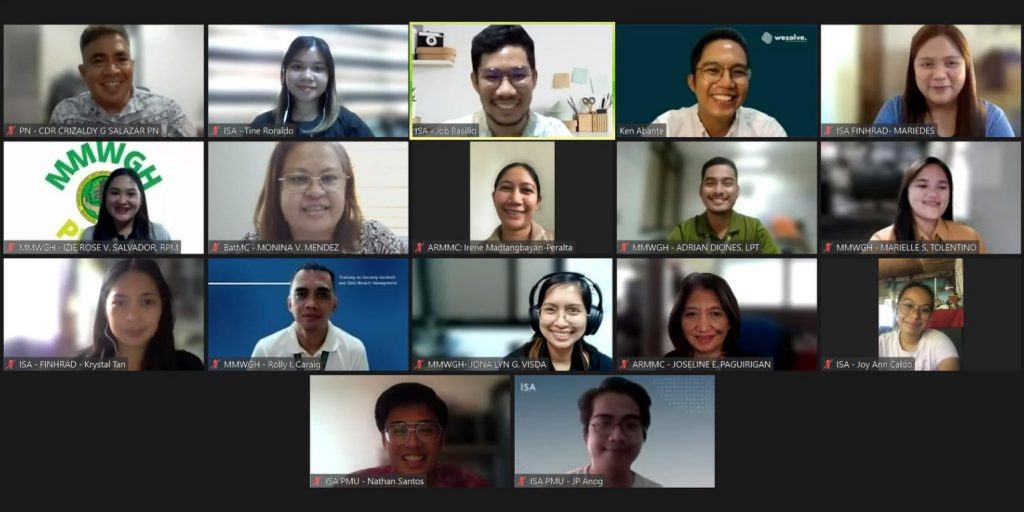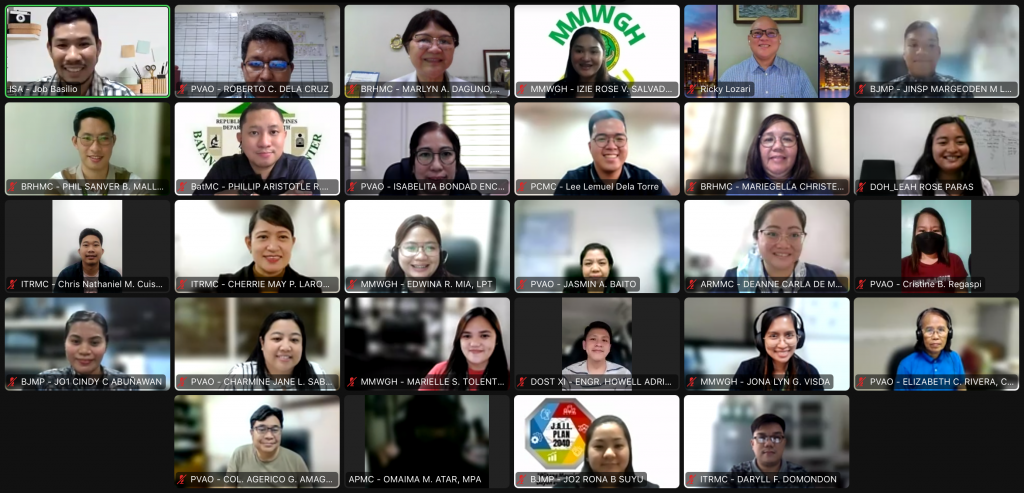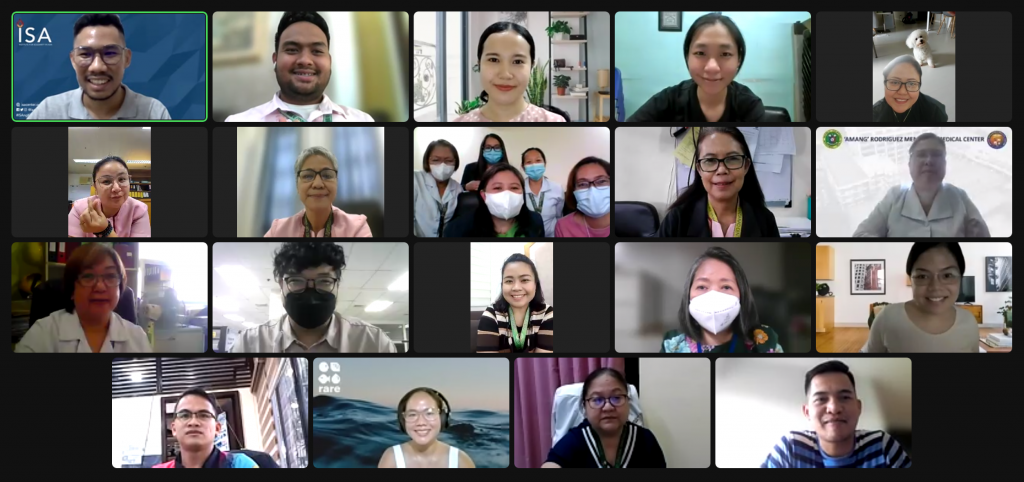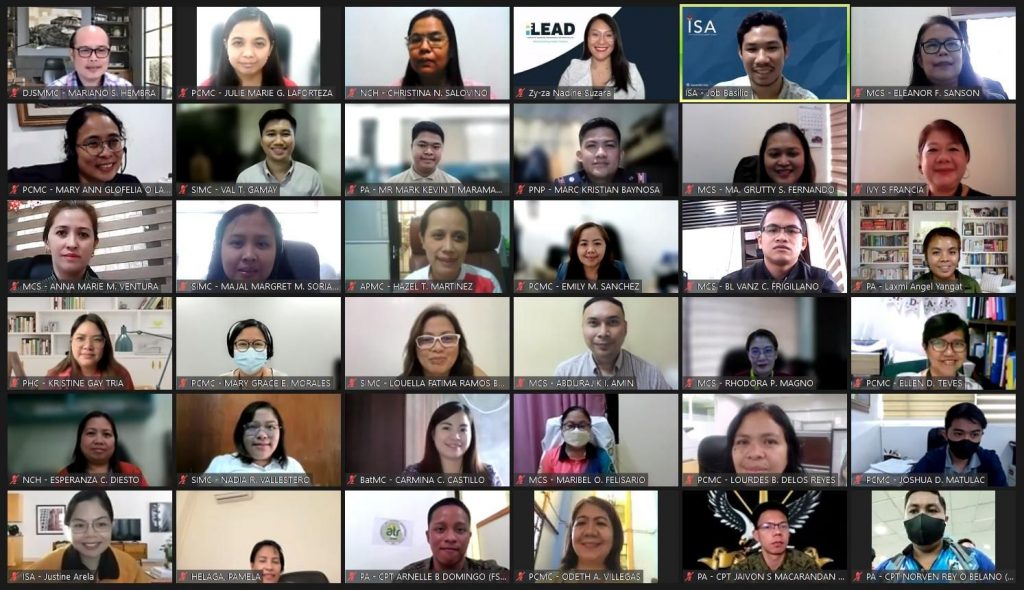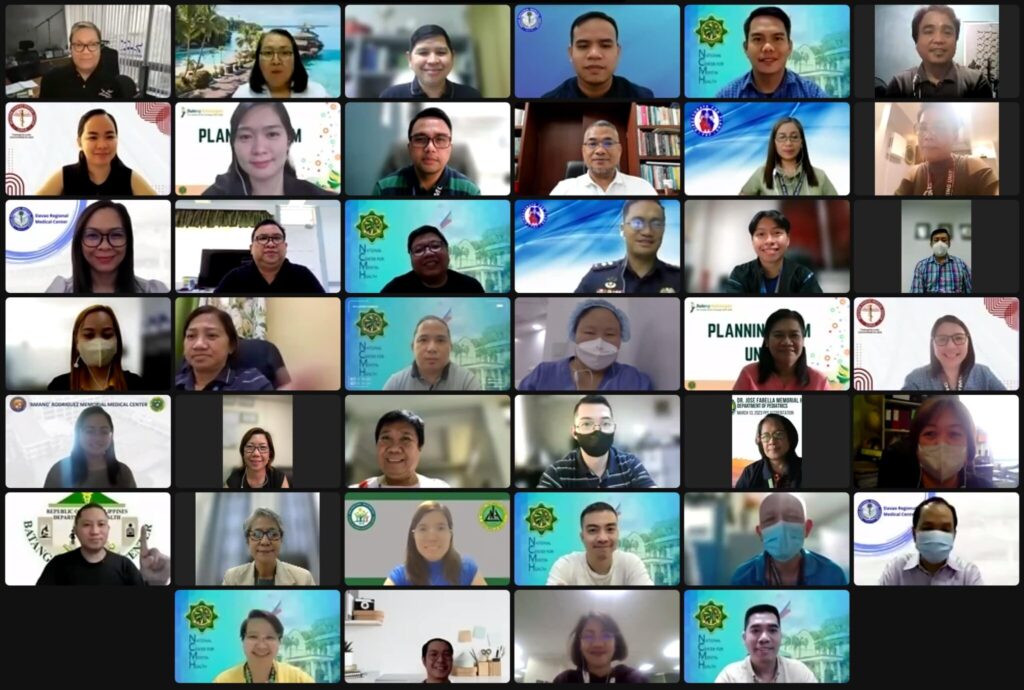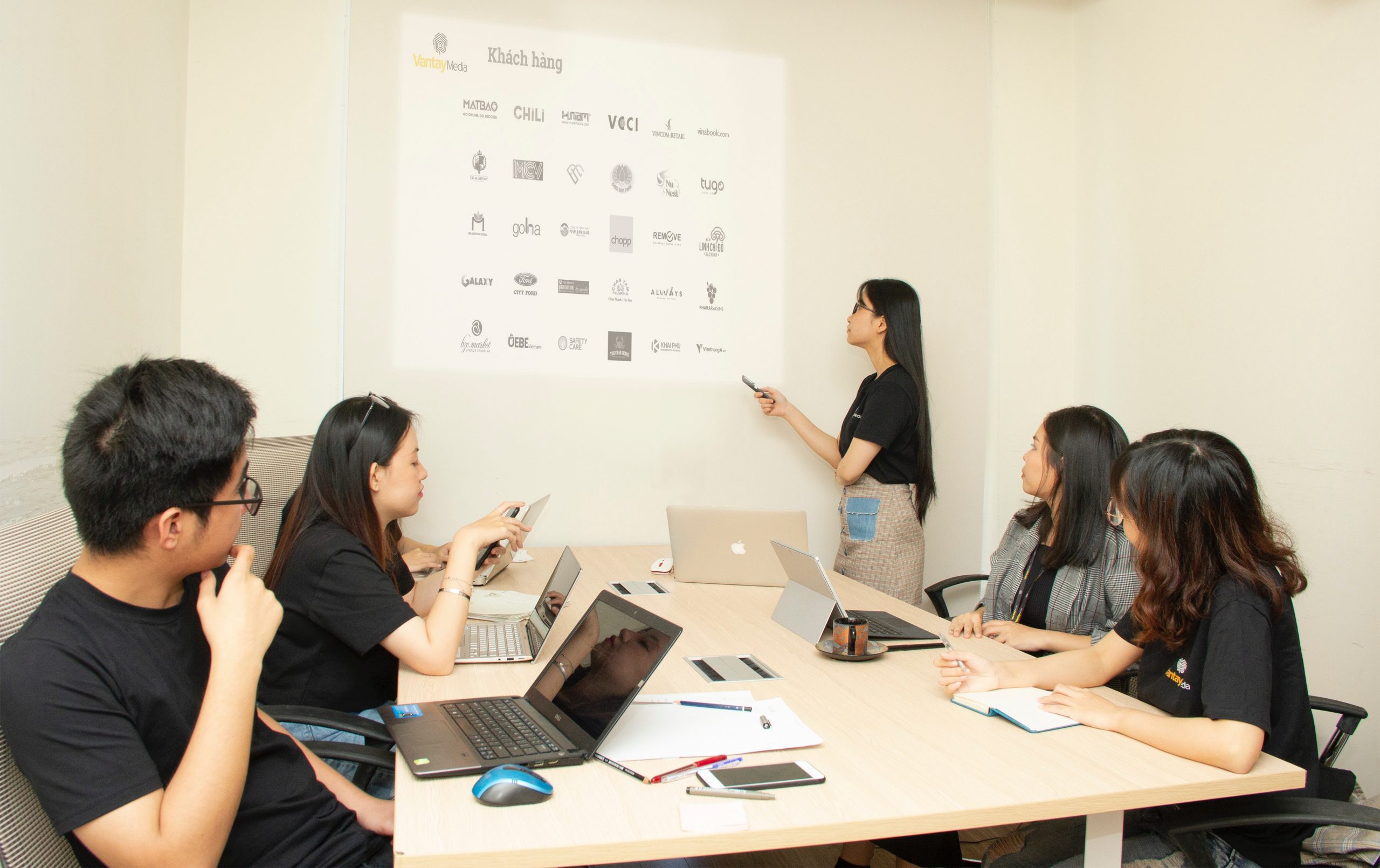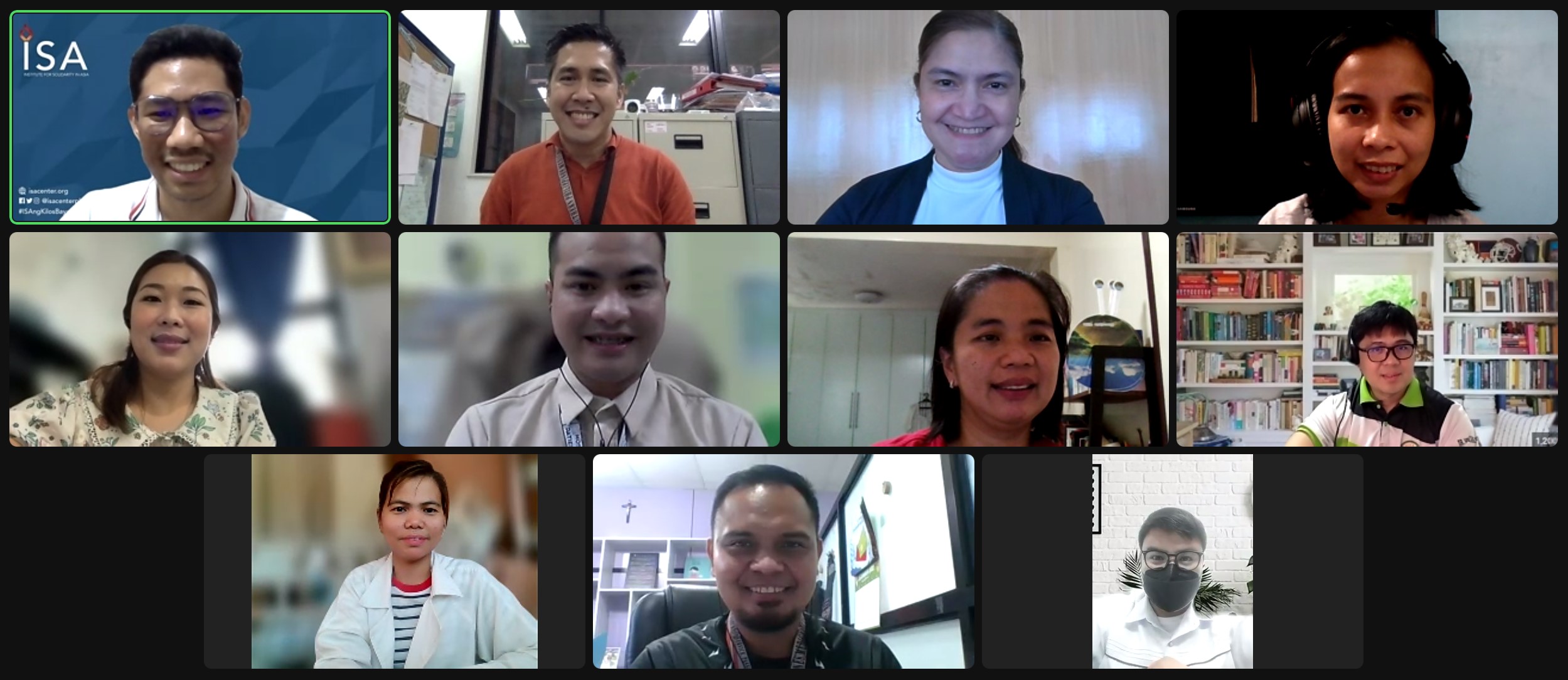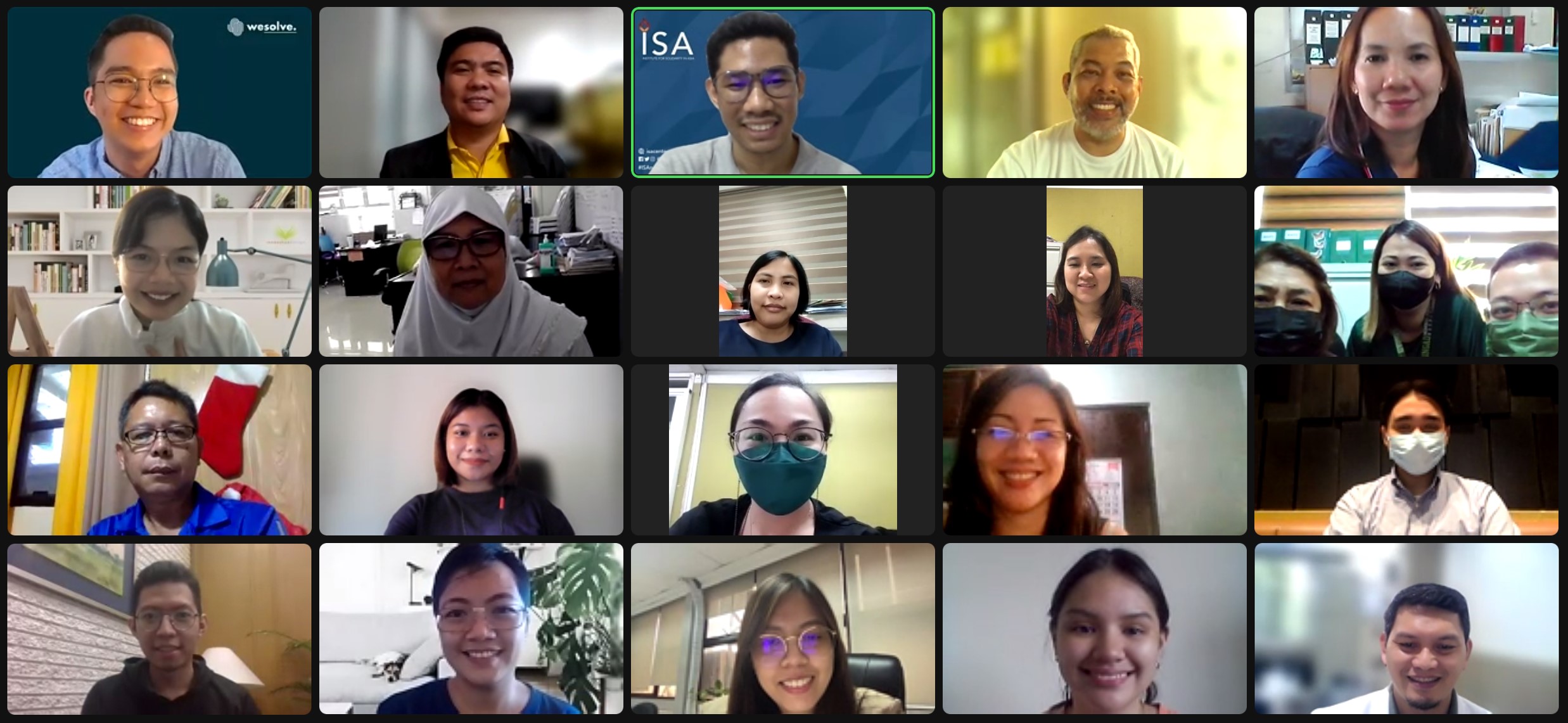After its consistently successful runs, the Institute for Solidarity in Asia (ISA) has conducted yet again one of its most sought-after sessions under the Skills Lab program—the Harmonization of the PGS with the ISO.
Last July 6 and 7, 16 delegates from national government agencies, hospitals, and educational institutions nationwide joined the highly anticipated online course. To provide the participants an overview of the International Organization Standardization (ISO) 9001:2015, its key requirements and benefits, and how the Performance Governance System (PGS) can integrate with their existing ISO mechanisms and practices, Ms. Darlen Page-Elnar, ISA’s go-to ISO expert, facilitated the workshop.
In the first session of the two-day course, Ms. Page-Elnar gave the participants a brief introduction to the ISO 9001:2005 and the Quality Management System (QMS) Certification in the Philippine Government. With this, she emphasized ISO as the most well-known standard in the country and as an existing standard worldwide. Her discussion of the first module included the concepts of Seven Quality Management Principles, and the QMS, where she introduced the Plan, Do, Check, and Act approach comprised of nine sections to support practitioners in managing their processes and systems in their respective institutions.
The seasoned management systems consultant’s discussion was then followed by equipping the audience with an understanding of the PGS Organizational Strategic Position and Roadmap. She presented the PGS and ISO Integration Matrix, which employs the PGS elements and their appropriate ISO clauses. This discussion gave the delegates a more comprehensive idea of consistently integrating the requirements. In observing the status of the set deliverables, the resource speaker talked about the Objectives and Key Results (OKRs), which propose making goals clear, inspiring, and public. More importantly, it reminds the participants to measure their progress continuously.
Through a series of workshops, Ms. Page-Elnar helped the participants deepen their knowledge by letting them perform a baseline review of their current system and cross-reference their PGS Scorecards with their Quality Management System key performance indicators (QMS-KPIs).
At the end of the program, the delegates actively took part by having the floor on their own as they raised their questions, which Ms. Page-Elnar was delighted to address. They shared their insights and reflections on how they can apply their learnings to their respective organizations. Dr. Catherin Salazar of the Talavera General Hospital recognized how valuable the program can be to their health institution.
“Regarding ISO, you have to simplify and layman-ize it. The rank and file also need to know they are involved. This is not the job [of] the top management alone—we need to disseminate to everyone,” Dr. Salazar said. “Tama si Ma’am [Page-Elnar]: there may be roadblocks, but there are strategies we can implement to bypass these roadblocks or reroute so that, eventually, we’ll be able to reach the destination.”
At the same time, Ms. Melanie Cedeno from the Philippine National Police Training Service further emphasized the relevance of their journey.
“Very eager kami to join this training because we intended to do extra effort para sa Training Service. Although minsan may challenges and roadblocks nga, but ‘yung commitment and passion namin para mapaganda itong PNPTS is stronger,” Ms. Cedeno said. “Hopefully, isa sa outputs na magkaroon kami from this journey between ISO and the PGS ay mai-distinguish ng mga tao ang trainings ng PNP from the others for its good qualities … so magandang journey ito, huwag tayong mapang-hinaan ng loob.”
Before concluding the session, Ms. Page-Elner left the delegates a message of encouragement to continuously pursue improvement, especially in their service to the people.
“Don’t complicate what it simple. There’s no such thing as a perfect organization—it’s always a constant work in progress,” she said.

